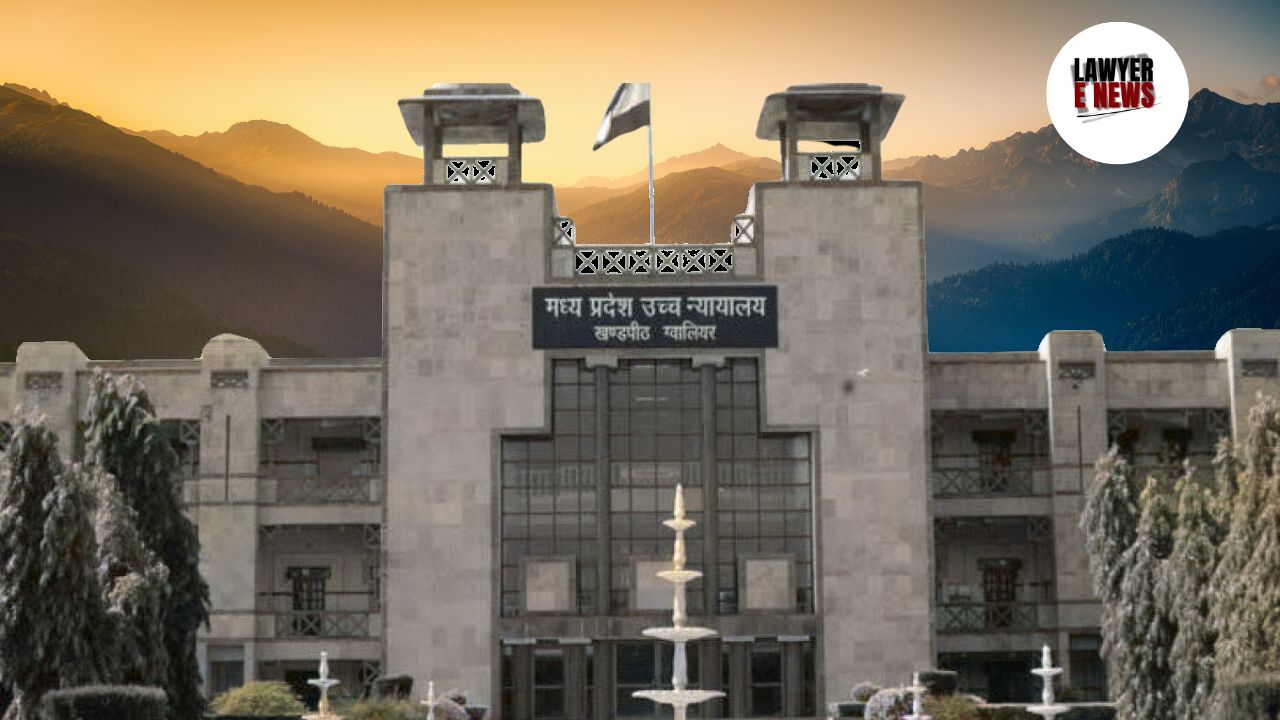-
by Admin
15 February 2026 5:35 AM



Court quashes Narsinghpur Collector's order, stressing jurisdiction limits under Section 47(A)(2) of M.P. Excise Act. In a significant ruling, the Madhya Pradesh High Court quashed the Narsinghpur Collector’s order to confiscate a vehicle involved in an illicit liquor case, emphasizing that such an order cannot be passed during the pendency of a criminal trial. The judgment, delivered by Justice Vinay Saraf, underscores the limitations of the Collector’s jurisdiction in confiscation proceedings prior to the conviction of the accused.
On January 25, 2023, police intercepted a Mahindra Bolero driven by Manish Singh Thakur in Narsinghpur and discovered 35 crates of illicit liquor (315 bulk liters). Consequently, a criminal case was registered under Section 34(2) of the M.P. Excise Act against respondents No. 3 and 4. The petitioner, Ramlal Jhriya, who owns the vehicle but was not an accused in the criminal case, challenged the confiscation order issued by the Narsinghpur Collector on August 14, 2023, under Section 47(A)(2) of the Act. Jhriya contended that the vehicle was used without his knowledge or consent, and that confiscation was improper during the ongoing criminal trial.
Justice Saraf highlighted that the Collector lacked jurisdiction to confiscate the vehicle during the pendency of the criminal trial. Citing the Supreme Court’s decision in State of M.P. vs. Madhukar Rao, the court observed, "No order for confiscation of any article including vehicle can be passed until the criminal trial culminates in conviction."
The court acknowledged conflicting views among coordinate benches regarding the simultaneous conduct of criminal and confiscation proceedings. However, it emphasized adherence to the principle established by higher judicial authority, stating, "During the pendency of criminal proceedings, the Collector has no jurisdiction to confiscate any article including the vehicle under Section 47(A)(2) of the Act, 1915."
Justice Saraf referred to multiple rulings by coordinate benches that had quashed confiscation orders passed during ongoing criminal trials, reiterating the necessity of awaiting the trial's outcome before proceeding with confiscation.
The court’s judgment focused on the statutory interpretation of Section 47(A)(2) of the M.P. Excise Act, distinguishing between the initiation of confiscation proceedings and the actual passing of a confiscation order. It emphasized that legislative intent and judicial precedents mandate that confiscation should only follow after the establishment of guilt through a criminal trial.
"The Collector’s power to order confiscation under Section 47(A)(2) is contingent upon the conclusion of the criminal trial. This ensures that property rights are not unduly infringed upon without a definitive finding of guilt."
The High Court’s decision reaffirms the judicial safeguard against premature confiscation, reinforcing the procedural integrity required under the M.P. Excise Act. This ruling has significant implications for future cases, ensuring that confiscation orders are grounded in established criminal liability, thereby protecting property rights during pending criminal proceedings.
Date of Decision: May 6, 2024
